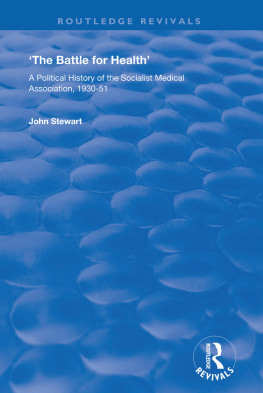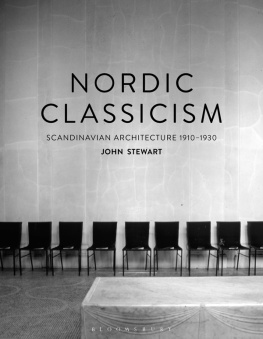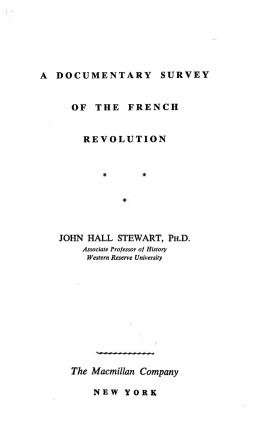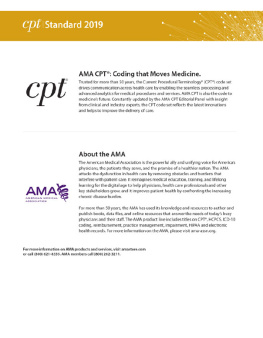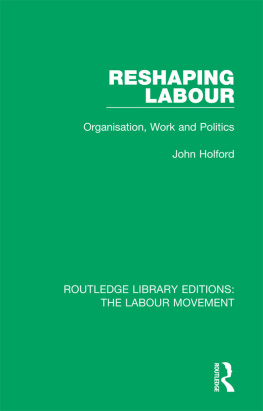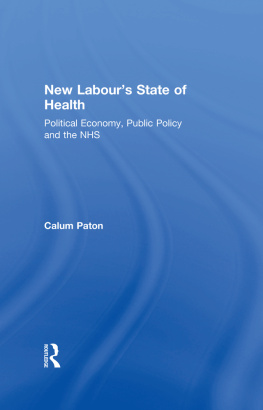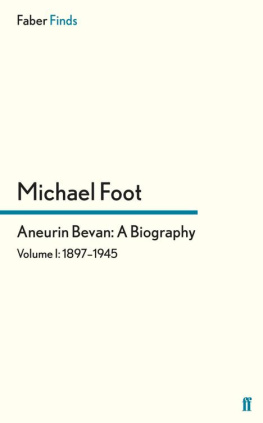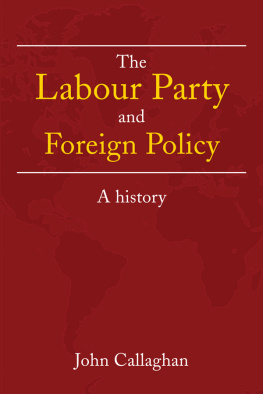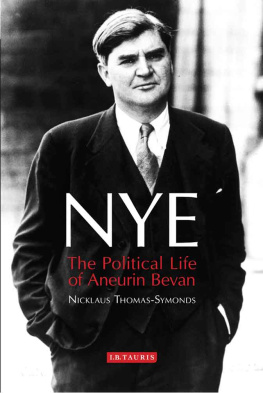'The Battle for Health'
The History of Medicine in Context
Series Editors: Andrew Cunningham and Ole Peter Grell, Department of History and Philosophy of Science, University of Cambridge
Titles in this series will include:
Medicine from the Black Death to the French Disease
edited by Roger French, Jon Arrizabalaga, Andrew Cunningham and Luis Garca-Ballester
Faith, Medical Alchemy and Natural Philosophy: Johann Moriaen, Reformed Intelligencer, and the Hartlib Circle
J. T. Young
The Making of the Dentiste, c. 1650-1760
Roger King
'The Battle for Health'
A Political History of the Socialist Medical Association, 1930-51
John Stewart
First published 1999 by Ashgate Publishing
Reissued 2018 by Routledge
2 Park Square, Milton Park, Abingdon, Oxon, OX14 4RN
52 Vanderbilt Avenue, New York, NY 10017
Routledge is an imprint of the taylor & Francis Group, an informa business
Copyright John Stewart, 1999
The author has asserted their moral right under the Copyright, Designs and Patents Act, 1988, to be identified as the author of this work.
All rights reserved. No part of this book may be reprinted or reproduced or utilised in any form or by any electronic, mechanical, or other means, now known or hereafter invented, including photocopying and recording, or in any information storage or retrieval system, without permission in writing from the publishers.
Notice:
Product or corporate names may be trademarks or registered trademarks, and are used only for identification and explanation without intent to infringe.
Publisher's Note
The publisher has gone to great lengths to ensure the quality of this reprint but points out that some imperfections in the original copies may be apparent.
Disclaimer
The publisher has made every effort to trace copyright holders and welcomes correspondence from those they have been unable to contact.
A Library of Congress record exists under LC control number: 98034699
Typeset in Sabon by Manton Typesetters, 5-7 Eastfield Road, Louth, Lincolnshire, LN11 7AJ
ISBN 13: 978-1-138-35041-0 (hbk)
ISBN 13: 978-0-429-43590-4 (ebk)
I wish to thank the Wellcome Trust for supporting my research into the Socialist Medical Association. This has taken the form of research and travel expenses; and, in the academic year 1997-98, a Research Leave Fellowship. Part of that year was spent at the Wellcome Unit for the History of Medicine, University of Oxford, where much of this book was written. I am grateful to the Unit's former Director, Jane Lewis, for providing me with this facility. The archivists and staff of the British Medical Association; the British Library of Economic and Political Science; the Bodleian Library, Oxford; Churchill College Archives, Cambridge; the Public Record Office, Kew; and the Museum of Labour History are to be commended for their patience and their knowledge of the sources for which they are responsible. Particular thanks are due to Brian Dyson and his colleagues at the Brynmor Jones Library, University of Hull, which holds the archives of the Socialist Medical Association and of Somerville Hastings. Stephen Brooke, Harry Hendrick, John Macnicol, David Nash, and Charles Webster were kind enough to constructively criticise various chapters, as were the editors of the series in which this volume appears, Andrew Cunningham and Ole Grell. Errors of fact and interpretation are, of course, entirely my own responsibility. Finally, two colleagues at Oxford Brookes University, Anne Digby and Harry Hendrick, have over the years been unfailing sources of support, personal and intellectual; I am deeply indebted to them.
- AGM Annual General Meeting
- BMA British Medical Association
- BMJ British Medical Journal
- EC Executive Committee (usually of the Socialist Medical Association)
- EMS Emergency Medical Service
- GMC General Medical Council
- GP General Practitioner
- ILP Independent Labour Party
- LCC London County Council
- MP Member of Parliament
- MPC Medical Planning Commission (of the British Medical Association)
- MPU Medical Practitioners' Union
- MTT Medicine Today and Tomorrow
- NALT National Association of Labour Teachers
- NEC National Executive Committee (of the Labour Party)
- NHS National Health Service
- PEP Political and Economic Planning
- PHAC Public Health Advisory Committee (of the Labour Party)
- SJCIWO Standing Joint Committee of Industrial Women's Organisations (of the Labour Party)
- SMA Socialist Medical Association
- SMSA State Medical Service Association
- SPSL Society for the Protection of Science and Learning
- TUC Trades Union Congress
Chapter One
Introduction
The National Health Service (NHS), often portrayed as the crowning achievement of the post-war Labour governments' 'welfare state', celebrated its fiftieth anniversary in 1998. One organisation which, at least by its own account, played an important role in the service's creation was the Socialist Medical Association (SMA), founded in 1930 and affiliated to the Labour Party the following year. The SMA campaigned for a unified state medical service universal in scope and free to all; served by full-time salaried staff, including medical practitioners; organised around the key institution of the health centre; emphasising preventive rather than curative medicine; and under democratic control, primarily at local level. Association members also held that medical practice, when allowed to work cooperatively and without economic barriers to the care of all patients, in itself provided a model for socialism. The way in which a socialised service was set up was therefore of equal importance with the care being delivered. These radical and innovative ideas together constituted the Association's vision of a socialised medical service, such a service being significant both in its own right and as part of the wider transition to a socialist society. In the course of its early history the SMA was able to attract, as members or supporters, prominent individuals such as the first Minister of Health, Christopher Addison; the propagandist for science, Ritchie Calder; and the medical scientists and practitioners Major Greenwood, Aleck Bourne, Richard Doll, David Stark Murray, and Somerville Hastings.
The Association has received a mixed press in scholarly studies of the political origins of the NHS. Some historians and social scientists have ignored it entirely, or suggested socialist ideology was unimportant in the formation of the new service. Others have highlighted, with varying degrees of emphasis, the SMA's participation in the debate over medical reconstruction, especially within the Labour Party. Of particular note here are the studies by Frank Honigsbaum and Charles Webster, both of whom place the Association's activities in their broader medico-political context. Ray Earwicker's unpublished doctoral thesis on the labour movement and the origins of the NHS situates the SMA in the wider field of left-wing proposals for health care reform, and is thus a vital source of information. Stephen Brooke's research on the Labour Party during the Second World War provides crucial insights into the political and policy context in which the Association operated, as well as giving

